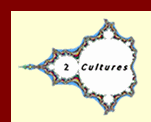From the section "The Creative Act: Symptom Or Side Effect"
"Does one have to be crazy to be creative?" "Nope, but it helps!" This is meant, of course, facetiously, as in: "Does one have to be crazy to have children?"
Putting aside the complex ethical and philosophical issues and all the psychological theories about mental illness, here are the commonsensical conclusions. Creativity is associated with, and enhanced by, certain personal characteristics and intense and varied experiences. There is reasonable consensus as to what these characteristics and experiences are. The characteristics are: high levels of motivation and energy and conscientiousness; substantial intelligence and an ability to find or invent connections between disparate elements; and independence of thought. The requisite experiences vary in type: they can be emotional or intellectual or actual. Regarding both characteristics and experiences, some are the result of nature, some nurture, and some a person's will.


